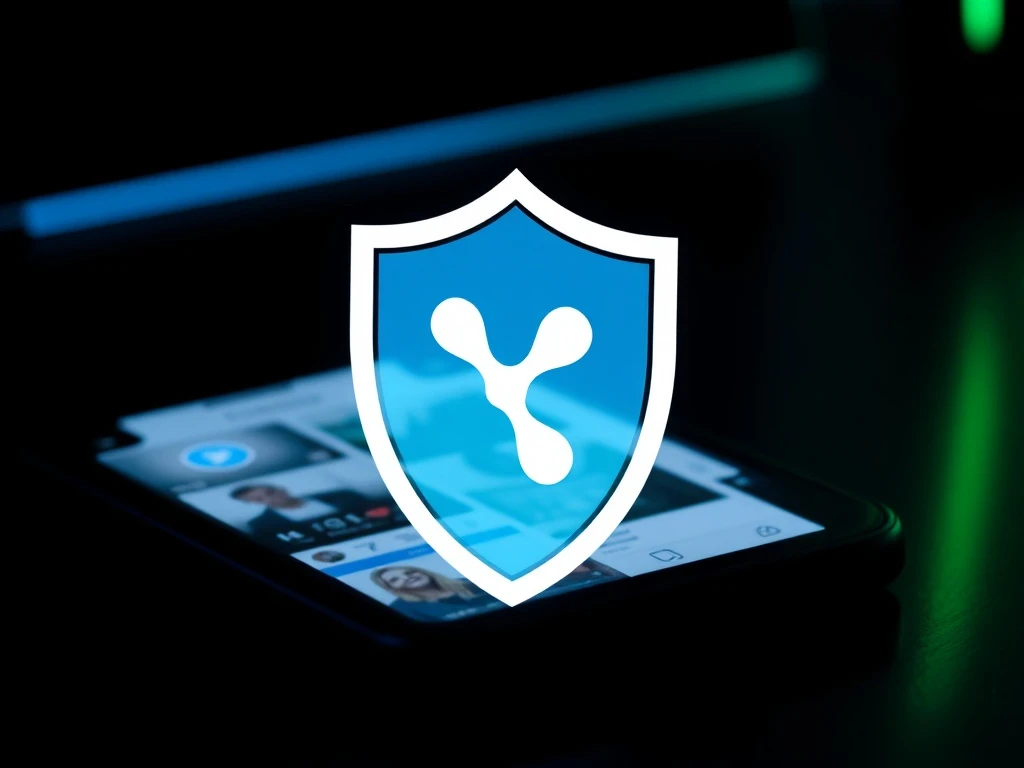XRP Holders Alert: Ripple CTO Issues Urgent Warning Against Deceptive Instagram Scams

In the fast-paced world of cryptocurrency, staying vigilant against fraudsters is paramount. For XRP holders, a new and pressing concern has emerged directly from the top: Ripple CTO David Schwartz has issued a critical warning about pervasive Instagram impersonation scams. This alert serves as a stark reminder that even the most prominent figures in the crypto space are not immune to being mimicked by malicious actors, putting your digital assets at risk.
Ripple CTO David Schwartz’s Crucial Warning
The alarm was sounded by none other than Ripple CTO, David Schwartz himself. He publicly urged XRP holders to exercise extreme caution against social media impersonation. This urgent message came after numerous fake Instagram profiles surfaced, all falsely claiming to be Schwartz. Scammers leverage these fabricated identities to trick unsuspecting followers into falling for phishing schemes, fake giveaways, or other elaborate fraudulent plots. Schwartz clarified on X (formerly Twitter) that he does not maintain an Instagram presence, unequivocally stating, “Any profile you see there that claims to be me is a scam.” This direct confirmation from a high-profile figure underscores the severity and prevalence of these digital threats.
Navigating the Treacherous Waters of Crypto Scams
The warning from Ripple’s CTO is not an isolated incident but rather a significant highlight of a persistent challenge within the crypto ecosystem: the constant battle against sophisticated crypto scams. Impersonation attacks, which exploit the trust associated with well-known individuals and brands, are a recurring menace. Beyond Instagram, similar fraudulent activities have been reported on platforms like YouTube, where scammers hijack legitimate channels or create convincing replicas of Ripple’s official profiles or those of its executives. Their goal? To promote fake investment opportunities, often promising unrealistic returns on XRP or other cryptocurrencies.
Ripple has consistently reinforced a vital red flag for users: neither the company nor its leadership will ever solicit XRP transfers from individuals. This principle is a cornerstone of their scam prevention strategy. To further assist users, Ripple has also published verified social media handles for its corporate accounts and key executives, including Schwartz, making it easier for the community to verify authenticity.
Why XRP Holders Are Prime Targets
XRP holders, alongside investors in other major cryptocurrencies, often find themselves in the crosshairs of scammers due to several factors. XRP boasts significant trading activity, a passionate community, and high visibility, making it an attractive target for fraudsters seeking to exploit trust and enthusiasm. The sheer volume of transactions and the growing interest from both institutional and retail investors create a fertile ground for malicious actors to operate. Scammers often prey on the desire for quick gains or the fear of missing out (FOMO), using social engineering tactics to manipulate individuals into parting with their valuable assets.
Spotting Instagram Impersonation Scams
Schwartz’s specific warning about Instagram scams highlights the evolving nature of crypto fraud. Instagram, with its emphasis on visual content and curated profiles, offers scammers a powerful tool to build a facade of legitimacy. They might use stolen photos, mimic communication styles, and even engage with genuine followers to create a believable persona before deploying their malicious tactics. Understanding the common characteristics of these scams can significantly bolster your defenses. Here are some red flags and actionable insights:
- Unsolicited Direct Messages: Be wary of unexpected messages from accounts claiming to be public figures, especially if they ask for personal information or crypto transfers.
- Too Good to Be True Offers: Promises of guaranteed high returns, double-your-crypto schemes, or exclusive giveaways are almost always scams.
- Pressure Tactics: Scammers often create a sense of urgency, pressuring you to act quickly before you have time to think or verify.
- Requests for Private Keys or Seed Phrases: NEVER share your private keys, seed phrases, or wallet passwords with anyone. No legitimate entity will ever ask for these.
- Unverified Profiles: Always check for official verification badges (blue checkmarks) on social media profiles. Even then, remain cautious, as verified accounts can sometimes be hacked.
Proactive Measures: Ripple’s Stance on User Protection
Ripple’s proactive stance in addressing these threats serves as a vital model for the broader cryptocurrency industry. By publicly exposing scams, educating their community, and providing verified account details, companies like Ripple are taking essential steps to mitigate trust erosion. Ripple CEO Brad Garlinghouse has also separately cautioned about YouTube scams, including those involving deepfake videos, further illustrating the multi-platform threat landscape that demands constant vigilance.
While companies like Ripple are doing their part, the ultimate responsibility for verifying the authenticity of social media interactions and investment opportunities rests with individual users. In a decentralized space, personal cybersecurity practices are non-negotiable, particularly when dealing with high-value assets like XRP.
The Broader Landscape of User Vigilance
The crypto community’s response to these warnings reflects a growing, albeit still developing, awareness of digital risks. Analysts note that while scams are not new to the sector, their sophistication, cross-platform reach, and use of advanced technologies like deepfakes have escalated. As the industry matures, striking a balance between fostering innovation and ensuring robust security measures remains critical. Ripple’s dual focus on technological advancement and user protection positions it well to navigate complex regulatory and operational challenges. However, the broader ecosystem, including individual investors, must adapt swiftly to these persistent and evolving threats.
For every XRP holder, the message is unequivocally clear: verification is not merely an option but a fundamental requirement in a digital landscape where trust can easily be weaponized by malicious actors. Stay informed, stay skeptical, and always verify before you trust.
Frequently Asked Questions (FAQs)
Q1: What specific warning did Ripple CTO David Schwartz issue?
A1: Ripple CTO David Schwartz warned XRP holders about widespread Instagram impersonation scams. He clarified that he does not have an Instagram presence and any profile claiming to be him is fraudulent, used for phishing, fake giveaways, or other scams.
Q2: How do scammers typically exploit social media platforms like Instagram and YouTube?
A2: Scammers create fake profiles or hijack legitimate ones to impersonate high-profile figures or official entities. They use these accounts to promote fake investment opportunities, solicit crypto transfers, or engage in phishing to steal personal and financial information. On YouTube, this includes using deepfake videos and channel hijacking.
Q3: What are the key red flags to identify a crypto scam, especially for XRP holders?
A3: Key red flags include unsolicited requests for XRP transfers, promises of unrealistic returns, pressure tactics to act quickly, requests for your private keys or seed phrases, and profiles that lack official verification or seem too good to be true. Remember, Ripple and its executives will never ask you to send them XRP.
Q4: What measures is Ripple taking to combat these scams?
A4: Ripple is actively combating scams by publicly exposing fraudulent activities, issuing direct warnings from its executives, and publishing verified social media handles for its corporate accounts and leadership. They also consistently reiterate that they will never ask users to transfer XRP.
Q5: Why are XRP holders particularly targeted by these scams?
A5: XRP holders are targeted due to the cryptocurrency’s significant trading activity, large and engaged community, and high visibility in the market. This makes XRP investors an attractive demographic for scammers seeking to exploit trust and the desire for financial gains.
Q6: What is the most important advice for XRP holders to protect themselves?
A6: The most important advice is to always verify the authenticity of any social media interaction or investment opportunity. Never share your private keys or seed phrases, be skeptical of unsolicited offers, and cross-reference information with official, verified sources before taking any action.









